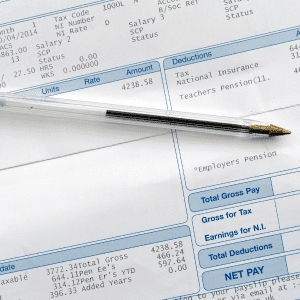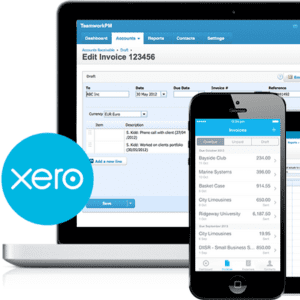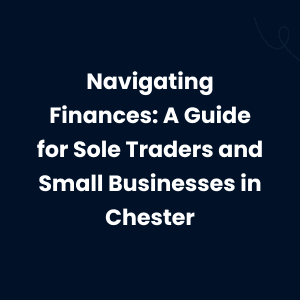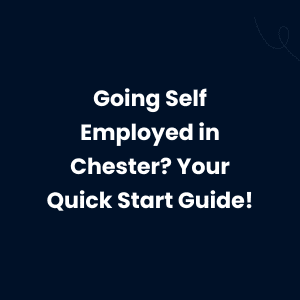Accountants Chester – Phillips & Co
– Family-Run Accountants based in Chester
– Chester Specialists: Self-Assessment | Accounts | Tax
– Clear, Affordable Fees – No Surprises
– Your Local Family-Run Accountants in Chester
– Chester Specialists: Self-Assessment | Accounts | Tax
– Clear, Affordable Fees – No Surprises
Chester’s Trusted, Family-Run Accountants
Simplify your finances with Phillips & Co, a dedicated father-and-son team of accountants in Chester. With 130+ 5-star Google reviews and 10+ years of local expertise, our ACCA-certified firm delivers bespoke, affordable accounting packages. We handle everything from tax planning and bookkeeping to payroll and company accounts, helping Chester businesses and individuals grow stress-free while you focus on what matters most.
Rabona Élményvilága
A Rabona sportfogadás nem csupán egy egyszerű platform, hanem egy igazi élmény. A rabona bet szolgáltatásai kiváló lehetőségeket kínálnak mind az újonnan érkezők, mind a tapasztalt fogadók számára. A fogadási események széles választéka biztosítja, hogy mindig találjunk valami izgalmasat. A különböző ligák és sportágak terén is széles skálát ölel fel a kínálatuk.
A Rabona Casino felkeresésekor érdemes figyelembe venni a bónuszlehetőségeket is. Megtalálhatóak itt a különböző fogadási bónuszok, amelyekkel a kezdés még izgalmasabb lehet. Nem titok, hogy a Rabona az applikációs felhasználók kényelmét is szem előtt tartja, amit a rabona app biztosít.
| Jellemzők | Megjegyzés |
|---|---|
| Fogadások | Széleskörű, sportágak és események különféle fajtái |
| Bónuszok | Udvözlő bónuszok és hűségprogramok |
| Játékok | Póker, rulett, blackjack, és több száz slot játék |
A Rabona platform egyedülálló élményeket kínál a sportfogadástól a kaszinóig. A rabona sportfogadás során különböző fogadási opciók közül választhatunk, legyen az élő fogadás vagy előre megkötött fogadás. Az applikáció kifejezetten felhasználóbarát, és megkönnyíti a hozzáférést minden szolgáltatáshoz mobil eszközökön keresztül.
- Felhasználóbarát felület
- Gyors kifizetési lehetőségek
- Bőséges fogadási piacok
- Kiváló mobil applikáció
Összességében a Rabona kivételes lehetőségeket kínál mind a sportfogadók, mind a kaszinó szerelmesei számára. Nem csoda, hogy a Rabona kaszinót sokan ajánlják. Fedezze fel ön is a különleges bónuszokat és a változatos játékokat Rabona casino oldalán.
Az applikáció révén a felhasználók mindig naprakészek maradhatnak, és azonnal értesülhetnek az aktuális ajánlatokról. Rugalmas bónuszrendszerük, valamint a gazdag játékpaletta teszi a Rabonát kiemelkedő választássá a piacon. A rabona app letöltése után a felhasználók még egyszerűbben élvezhetik a fogadások világát.
Verde Casino Tapasztalataim és Bónusz Lehetőségek
Magyarország egyik legnépszerűbb online játékterének számító Verde casino rengeteg izgalmas lehetőséget kínál a szerencsejátékok kedvelőinek. Számos bónusz és promóció érhető el az új és régi játékosok számára egyaránt. Ismerjük meg részletesebben a Verde casino kínálatát.
A Verde casino no deposit bonus különösen vonzó lehet azok számára, akik szeretik a kockázatmentes játékot. Ezzel a bónusszal lehetőség nyílik kipróbálni különféle játékokat pénzügyi befektetés nélkül. Az oldalra történő Verde casino belépés egyszerű folyamat, csupán néhány adat megadása után máris élvezhetjük az online játék világát.
Az alábbi táblázat felsorolja a Verde kaszinó néhány kiemelkedő szolgáltatását és bónusz lehetőségeit:
| Jellemzők | Leírás |
|---|---|
| No Deposit Bonus | Lehetőség pénz befizetése nélkül kipróbálni játékokat. |
| Promo Kódok | Speciális Verde casino promo code használható extra bónuszokért. |
| Játék Típusok | Slots, Blackjack, Rulett és sok más izgalmas játék. |
A Verde kaszinó különféle játéktípusokat és bónuszokat kínál, amelyek alább részletezésre kerülnek:
- Online nyerőgépek: Számtalan témával és bónusz körökkel.
- Kártyajátékok: Klasszikus játékok, mint például Blackjack és Póker.
- Élő kaszinó: Valós időben játszható valódi osztókkal.
- Jackpot nyerőgépek: Nyerj hatalmas összegeket progresszív jackpotokban.
Az oldal egyszerű síkú és könnyen navigálható felületet biztosít, amely megkönnyíti a játék örömét. A Verde casino különleges ajánlatokkal, például ingyenes pörgetésekkel és cashback lehetőségekkel teszi még vonzóbbá a játékot. Csak kattintson, jelentkezzen be, és kezdje el a játékot még ma!
Fedezd fel a Betmatch Világát
A Betmatch egy olyan platform, amely vonzó lehetőségeket kínál a fogadást kedvelők számára. A bet match kifejezés új értelmet nyer a Betmatch kínálatában. Az innováció és a kényelem ötvözeteként a Betmatch app könnyen elérhető és használható. Különböző promóciók is elérhetők a játékosok számára, mint például a betmatch no deposit bonus code és a betmatch promo code, amelyekkel még nagyobb esélyt kínálnak a nyereményre. A felhasználók különféle betmatch vélemények alapján egyöntetűen állítják, hogy a platform szórakoztató élményt biztosít.
Egyetlen kattintással hozzáférhetsz a Betmatch casino világához, ahol kimeríthetetlen szórakozási lehetőségek várnak rád. A betmatch casino promo code segítségével az élmény még fantasztikusabbá válik, a gazdag játékportfólió pedig az egyik legizgalmasabb online kaszinóvá teszi a Betmatch platformját.
| Jellemző | Leírás |
|---|---|
| Regisztrációs Bónusz | Az új felhasználóknak elérhető betmatch promocios kod számos bónuszt tartalmaz, hogy könnyebben kezdhessék meg a játékot. |
| Széles Játékpaletta | A Betmatch online casino számtalan játékot kínál, beleértve a népszerű kártyajátékokat és nyerőgépeket. |
| Exclusive Promók | A rendszeres felhasználók speciális betmatch promo code lehetőségeket kapnak, hogy növeljék nyerési esélyeiket. |
Tulajdonképpen, a Betmatch világában nincs hiány a szórakozási lehetőségekben. Az alábbi listában összegyűjtöttük a legfőbb előnyeit:
- Bónuszok széles skálája
- Nagy választékú játékportfólió
- Könnyen használható Betmatch app
- Betmatch promo code ajánlatok
- Gyors és biztonságos kifizetések
A Betmatch egy olyan egyedülálló platform, amely kiemelkedik a versenytársak közül, és különleges ajánlataival vonzza a felhasználókat, legyen szó kezdőkről vagy tapasztalt játékosokról. A betmatch online casino nem csupán egy játékhelyszín, hanem egy valódi élmény, ahol az intelligens fogadók találkoznak a legújabb technológiákkal, így teszve teljessé a játékélményt.
Our Core Services
Explore our tailored accounting solutions for Chester:
– Tax Planning & Compliance: Optimise your tax strategy and stay HMRC-compliant with expert guidance for Chester businesses and individuals.
– Self-Assessment Services: Stress-free Self-Assessment filing for Chester clients, ensuring accuracy and maximising deductions with personalised support.
– Limited Company Accounts: Comprehensive accounting for Chester limited companies, including statutory accounts, Corporation Tax, and director tax returns.
– Bookkeeping & VAT Services: Accurate bookkeeping and VAT support for Chester businesses, with cloud software guidance to keep your finances organised.
– Startup Business Support: Launch your Chester startup with confidence—company formation, tax setup, and affordable accounting from day one.
Book a free consultation with our Chester team (Simplify your taxes and grow your business stress-free!)
Why Chester Businesses Trust Phillips & Co
For over 10 years, our family-run team has been Chester’s go-to for expert tax and accounting support. With 4.9-star Google reviews (95 reviews), we provide tailored, stress-free solutions to help Chester businesses and individuals thrive. Our Xero-certified accountants ensure maximum tax savings and real-time financial clarity.
Why Choose Us?
– Local Expertise: Tailored for Chester’s market.
– Tax Savings: Claim every deduction available.
– Cloud Accounting: Xero-certified for real-time insights.
– Proven Excellence: 4.9-star Google rating.
– Certified Experts: ACCA-accredited with local knowledge.
Trusted by Chester Businesses
Our team partners with Chester businesses, from startups to SMEs, to simplify taxes and drive growth. Contact Us to join our valued clients.
Odkryj Świat Vulkan Vegas
Vulkan Vegas, znane również jako vulkan vegas casino, to jedno z czołowych miejsc na mapie świata hazardu online. Jego popularność w Polsce nie jest przypadkowa. Dzięki szerokiej ofercie gier kasyno, atrakcyjnym bonusom, a także doskonałemu wsparciu dla klientów, Vulkan Vegas przyciąga graczy z całego świata. Vulkan vegas pl to miejsce, gdzie rozrywka spotyka się z profesjonalizmem.
Gracze, którzy cenią sobie bezpieczeństwo, mogą bez obaw korzystać z vulkan casino, które kładzie duży nacisk na ochronę danych osobowych oraz uczciwą grę. Dzięki współczesnym technologiom, każdy użytkownik może cieszyć się gładkim i bezstresowym doświadczeniem. Co więcej, proces Vulkan Vegas PL logowanie jest intuicyjny i prosty, dzięki czemu prędko możemy zacząć przygodę z grą.
| Funkcje | Opis |
|---|---|
| Bonusy Powitalne | Atrakcyjne oferty dla nowych graczy |
| Różnorodność Gier | Setki gier do wyboru, od slotów po gry stołowe |
| Bezpieczeństwo | Zabezpieczenia SSL i uczciwa gra |
Każdy, kto szuka emocji i niespotykanych przygód, znajdzie coś dla siebie w vulkan kasyno. Wybierając spośród tysięcy gier, takich jak klasyczne sloty, wideo poker czy też nowoczesne gry stołowe, zawsze można poczuć dreszczyk emocji. Vulkan Vegas pl wciąż rozwija swoją ofertę, dodając nowe i innowacyjne gry.
- Rozpocznij swoją podróż z Vulcan Vegas – dołącz i zaloguj się.
- Wykorzystaj dostępne bonusy i promocje.
- Wybierz z szerokiej gamy gier kasyno.
- Ciesz się bezpieczną i uczciwą grą.
- Odbierz swoje wygrane szybko i sprawnie.
W świecie Vulkan Vegas każda chwila jest pełna emocji i zachwytu. Dzięki przyjaznemu interfejsowi, nawet nowicjusze szybko poczują się jak weterani w vulcan vegas. Nic dziwnego zatem, że coraz więcej graczy wybiera vulkanvegas jako swoje ulubione kasyno online. Oferując niezrównane doznania, vulkan vegas logowanie jest kluczem do świata pełnego wygranych.
Zalety GGBet: Warto Znać
Ggbet casino zyskało popularność dzięki różnorodności oferowanych gier oraz atrakcyjnym bonusom, przyciągając entuzjastów hazardu z całego świata. GG Bet jest uznawane za jedno z czołowych kasyn online w polsce, oferując jednocześnie doskonałą obsługę klienta i innowacyjne rozwiązania. Wielu graczy docenia też funkcjonalność i intuicyjność strony internetowej. Więcej informacji o ofercie i promocjach można znaleźć na GGbet.
| Funkcja | Opis |
|---|---|
| Bonus powitalny | Atrakcyjne bonusy dla nowych graczy, które mogą zwiększyć szansę na wygraną. |
| Różnorodność gier | Ggbet polska oferuje szeroki wybór, od klasycznych slotów po nowoczesne gry stołowe. |
| Bezpieczeństwo | Zaawansowane technologie szyfrowania dla pełnej ochrony danych osobowych użytkowników. |
Decydując się na grę, warto zwrócić uwagę na różnorodność dostępnych opcji. Każdy gracz może znaleźć coś dla siebie, niezależnie od preferencji i doświadczenia. Przedstawiamy niektóre z atrakcji oferowanych przez GGbet pl:
- Turnieje z nagrodami – Rywalizacja w czasie rzeczywistym z innymi graczami zwiększa emocje.
- Aplikacja mobilna – Możliwość gry z dowolnego miejsca dzięki aplikacji kompatybilnej z większością urządzeń.
- Wsparcie 24/7 – Profesjonalna obsługa klienta dostępna przez całą dobę, gotowa odpowiedzieć na każde pytanie.
Gg bet casino zapewnia nie tylko rozrywkę, ale i profesjonalizm. Wszystkie działania prowadzone są zgodnie z zasadami fair play, co jest często podkreślane przez społeczność graczy. Dodatkowo, system nagród lojalnościowych stworzony przez GGbet przyciąga coraz więcej stałych klientów, którzy cenią sobie możliwość uzyskania różnych bonusów za regularną grę.
Ggbet zainwestowało sporo w rozwój technologiczny, co pozwala na szybkie ładowanie gier i płynne działanie serwisu w każdych warunkach sieciowych. Nowoczesne rozwiązania sprawiają, że wiele osób decyduje się na GG bet pl jako na swoją główną platformę do gry.
Odkryj Świat Total Casino
W ostatnich latach Total casino zyskało ogromną popularność wśród polskich graczy. Cieszy się ono uznaniem z wielu powodów, w tym bogatej oferty gier oraz atrakcyjnych bonusów. Opinie graczy o total casino opinie są bardzo pozytywne, co przyciąga nowych użytkowników. W tej sekcji zapoznamy się z kluczowymi elementami, które wyróżniają total kasyno na tle konkurencji.
| Funkcja | Opis |
|---|---|
| Rodzaje gier | Sloty, blackjack, ruletka, poker |
| Bonusy i promocje | Bonus powitalny, darmowe spiny, program lojalnościowy |
| Obsługa klienta | Całodobowa pomoc, czat online, e-mail |
Total casino pl dokłada wszelkich starań, aby zapewnić graczom niezapomniane przeżycia i niezawodność na najwyższym poziomie. Poza standardowymi grami, total casino oferuje również innowacyjne rozwiązania, takie jak turnieje z nagrodami czy gry na żywo. To właśnie te cechy przyciągają do niego takie rzesze fanów.
- Duży wybór gier
- Bezpieczne transakcje
- Szybkie wypłaty
- Dostępność na urządzeniach mobilnych
Każdy z wyżej wymienionych elementów przyczynia się do tego, że totalcasino stanowi świetne miejsce dla wszystkich, którzy szukają zarówno rozrywki, jak i wyzwań w grach hazardowych. W związku z tym, jeśli zainteresowaliście się total casino, warto rozważyć założenie konta i odkrycie wszystkich możliwości, jakie oferuje to wyjątkowe total kasyno.
Comprehensive Accounting & Tax Services
Our team at Phillips & Co delivers tailored accounting support for Chester businesses and startups. From compliance to growth, we’re the accountants Chester trusts to simplify finances.
Our Services
– Self-Assessment: Easy, accurate personal tax returns.
– Tax & Compliance: Minimise tax liabilities with expert planning.
– Bookkeeping & VAT: Clear records, MTD-compliant VAT.
– Limited Company Accounts: Compliant accounts and tax filings.
– Payroll & CoSec: Reliable payroll and Companies House support.
– Startup Support: Guidance for Chester’s new ventures.
Die Welt von 20bet und ihren Angeboten
20bet ist eine der führenden Wettplattformen, die Spielern aus aller Welt aufregende Möglichkeiten bietet. In der Schweiz erfreut sich 20bet schweiz einer besonderen Beliebtheit, da es ein breites Spektrum von Spielen und Wettoptionen bietet. Die Benutzeroberfläche der 20bet App ist benutzerfreundlich gestaltet, um ein optimales Spielerlebnis zu garantieren. Insbesondere das 20bet casino zieht mit einer Vielzahl von Spielen und großzügigen Boni sowohl Neulinge als auch erfahrene Spieler an.
Ein essenzieller Aspekt bei der Nutzung der Plattform ist der 20bet login, der sicherstellt, dass Benutzer problemlos auf ihr Konto zugreifen können. Die Eröffnung eines Kontos bei 20 bet ermöglicht es den Nutzern, die Vorteile der Plattform voll auszuschöpfen. Die mobile Anwendung ist ein weiterer Pluspunkt, der den Spielern Flexibilität und Komfort bietet. Sie können ihre Lieblingsspiele ganz einfach unterwegs genießen, ob auf dem Smartphone oder Tablet.
Interessante Funktionen und Boni
- Breite Auswahl an Wettmöglichkeiten
- Regelmäßige Boni und Promotionen
- Live-Wetten und In-Play-Funktionen
- Mehrsprachige Kundenbetreuung
| Kategorie | Beschreibung |
|---|---|
| Spiele | Slots, Tischspiele, Live-Casino |
| Boni | Willkommensbonus, Einsatzfreies Bonusgeld |
| Mobile App | Verfügbar für iOS und Android |
Für neue Spieler ist der Einstieg in die Welt der Online-Wetten bei 20bet eine aufregende Erfahrung. Mit der sicheren Anmeldung durch den 20bet login wird der Prozess benutzerfreundlich gestaltet und bietet gleich zu Beginn diverse Optionen. Zusätzlich reizt das 20bet casino durch fortlaufende Aktionsangebote und ein aufregendes Spielumfeld. Es ist nicht nur die Vielfalt der Spiele, sondern auch die Qualität, die 20 bet von anderen Anbietern abhebt. Die Möglichkeit, auf einem über Mobilgeräte optimierten 20bet app zu wetten, verbessert das Spielerlebnis weiter.
Zusammenfassend ist 20bet eine Plattform, die nicht nur durch ihre Vielfalt und Qualität, sondern auch durch ihre Benutzerfreundlichkeit besticht. Unabhängig von ihrem Standort ermöglicht 20bet schweiz den Spielern, in eine Welt voller Möglichkeiten einzutauchen. Die Optionen reichen von Sportwetten über Casinospiele bis hin zu Live-Dealer-Erlebnissen. Es ist unerlässlich, dass Benutzer regelmäßig die aufregenden neuen Funktionen und Boni erkunden, die kontinuierlich eingeführt werden, um das Spielerlebnis zu verbessern und die Zufriedenheit der Kunden zu gewährleisten.

Accounting
Our ACCA-certified Chester accountants provide statutory accounts and management financial reporting. Ensure compliance, gain clarity, and save time with tailored annual accounts and financial statements, making your business finances stress-free.

Self Assessment
Simplify your tax season with our Chester Self-Assessment services for sole traders, landlords and individuals. Our team of accounting & tax experts ensure HMRC compliance, maximise deductions, and reduce your tax burden, delivering peace of mind as well as accurate filings.

Tax
Optimise your business finances with Phillips & Co Accountants tax planning services. Our ACCA-certified team provides Corporation Tax and VAT strategies, offering proactive advice to minimise liabilities, support business growth, and ensure compliance with tailored solutions.

Payroll
Outsource your payroll requirements to Phillips & Co Accountants payroll experts for seamless payroll processing and PAYE compliance. We manage weekly or monthly payroll filings, pensions & reporting, saving time and ensuring compliance for businesses of all sizes.

CoSec
Meet legal requirements with Phillips & Co Accountants Chester company secretarial services. Our team manages filings, registers, and Companies House compliance, ensuring peace of mind and smooth operations for your business with precision.

Bookkeeping
Stay on top of your business finances with our expert Chester bookkeeping services. Using Xero, our team delivers real-time, accurate records, ensuring compliance and freeing you to focus on growing your business efficiently with confidence.

Startups
Confidently launch your business with our Chester startup services. Our team of experts provide company formation, tax registration, and tailored business planning, setting your venture up for success with strategic advice and seamless setup.

Management
Gain insights with Chester management accounts tailored for businesses. Our ACCA-certified team of accountants deliver reports to track performance, guide strategic decisions, and boost profitability, helping you achieve financial goals with confidence.
Transparent Accounting Fees
At Phillips & Co Accountants Chester, we get it – you want expert accounting without confusing costs. We offer clear, competitive accounting fees, through affordable monthly plans.
Startup Special
Launching a new business in Chester? Our ‘Essential’ Packages (starting from just £28/mo, No VAT) are the perfect starting point. We also offer a Company Formation service (£100 + Companies House fee) for a complete and compliant setup.
Learn about our Startup Support
Our Monthly Plans
Tailored packages include Xero cloud accounting support, deadline reminders, and friendly assistance. Software fees are billed separately.
Popularne Gry Kasyna Online: Przewodnik po Hot Slots
W dzisiejszych czasach, świat gier online kwitnie i jedna z najpopularniejszych form rozrywki to Hot slots, te niezwykle wciągające gry oferują różnorodne motywy, bonusy i funkcje, które przyciągają graczy z całego świata. Głównym urokiem hotslot jest ich prostota oraz możliwość zdobycia dużych wygranych przy odrobinie szczęścia.
Kasyna typu hot slots casino zapewniają graczom wiele różnych opcji do wyboru. Od klasycznych automatów z owocami, przez nowoczesne maszyny z zaawansowaną grafiką, dźwiękiem oraz niezwykle atrakcyjnymi funkcjami bonusowymi. Właśnie dlatego hotslots stały się ulubieńcem zarówno nowych jak i doświadczonych graczy.
| Cecha | Opis |
|---|---|
| Dostępne Bonusy | Darmowe spiny, bonusy powitalne, promocje tygodniowe |
| Typy Gier | Klasyczne sloty, wideo sloty, progresywne jackpoty |
| Opcje Płatności | Przelewy bankowe, karty kredytowe, e-portfele |
Grając na hot slots casino, gracze mają szansę na wypróbowanie różnych typów gier, z których każda ma swoje unikalne cechy i oferuje inne doświadczenia. Na przykład, automaty z progresywnym jackpotem mogą przynieść niesamowite wygrane, które zmieniają życie, podczas gdy klasyczne sloty przyciągają swoją prostotą i nostalgicznym urokiem.
- Zacznij od wyboru renomowanego kasyna online.
- Skorzystaj z bonusów powitalnych oferowanych przez kasyno.
- Przetestuj różne gry zanim zaangażujesz się finansowo.
- Zarządzaj swoim budżetem i bądź świadomy ryzyka.
Kolejnym atutem hotslots jest ich dostępność. Większość kasyn online oferuje swoje gry zarówno na komputerach, jak i urządzeniach mobilnych, co oznacza, że gracze mogą cieszyć się swoimi ulubionymi slotami w dowolnym miejscu i czasie. Dzięki temu, hotslot stał się fenomenem na międzynarodową skalę.
Wreszcie, warto również wspomnieć o społeczności wokół tematów takich jak hot slots. Fora internetowe, czy nawet grupy w mediach społecznościowych pozwalają graczom dzielić się doświadczeniami, strategiami oraz najlepszymi ofertami kasyn. To sprawia, że gry te są nie tylko formą rozrywki, ale także społecznym doświadczeniem i miejscem do nawiązywania nowych znajomości.
Erleben Sie Die Welt Von 20bet Casino
Entdecken Sie die aufregende Welt des 20bet Casinos, das eine Vielzahl von spannenden Spielen und Möglichkeiten bietet. Die Plattform findet großen Anklang bei Spielern weltweit, insbesondere bei denjenigen in der Schweiz, die ein sicheres und unterhaltsames Glücksspielerlebnis suchen. Das 20bet Casino bietet nicht nur klassische Tischspiele, sondern auch moderne Spielautomaten und Live-Dealer-Optionen.
Ein weiterer großer Vorteil des 20bet Casinos ist die benutzerfreundliche 20bet App, die es Spielern ermöglicht, jederzeit und überall auf ihre Lieblingsspiele zuzugreifen. Die mobile App ist mit einer Vielzahl von Geräten kompatibel und bietet eine nahtlose Integration, die genauso gut funktioniert wie die Desktop-Version.
| Funktionen | Boni | Spieltypen |
|---|---|---|
| Live-Dealer-Spiele | Willkommensbonus | Blackjack |
| Breite Spielauswahl | Freispiele | Roulette |
| 24/7 Kundenservice | Cashback-Angebote | Slots |
Für diejenigen, die immer auf dem Laufenden bleiben möchten, bietet der 20bet Blog regelmäßig Updates und Strategien an, die helfen können, die Gewinnchancen zu verbessern. Viele Spieler nutzen auch den einfachen 20bet Login-Prozess, um schnell wieder ins Spiel zu gelangen und keine Zeit zu verlieren. Egal, ob Sie in 20bet Schweiz oder anderswo spielen, es gibt immer ein aufregendes Angebot, das darauf wartet, entdeckt zu werden.
Verpassen Sie nicht die Möglichkeit, Ihre Fähigkeiten zu verbessern und vielleicht zu gewinnen, indem Sie die Welt von 20bet erkunden. Die Plattform lädt dazu ein, innovativ zu denken und Teil eines wachsenden Netzwerks von Spielern zu werden, die höchste Qualität und unvergleichlichen Spielspaß suchen.
- Registrieren Sie sich einfach auf der Website.
- Laden Sie die 20bet App herunter, um im Handumdrehen mobil zu spielen.
- Erlangen Sie Zugang zu exklusiven Boni durch den 20bet Login.
- Erkunden Sie die große Vielfalt an Spielen und entdecken Sie neue Favoriten.
- Profitieren Sie von sicheren und flexiblen Einzahlungs- und Auszahlungsmethoden.
Das 20bet Casino hebt sich durch sein Engagement für Kundenzufriedenheit und Spielintegrität hervor. Der 24/7-Kundenservice ist immer bereit, bei der Lösung von Problemen zu unterstützen und sicherzustellen, dass Ihre Erfahrung reibungslos und angenehm ist.
Entdecken Sie Nine Casino und seine Angebote
Willkommen bei unserer umfassenden Erkundung von Nine Casino, einer spannenden Plattform für Glücksspielbegeisterte. Dieses Casino bietet seinen Nutzern zahlreiche Möglichkeiten, um ein herausragendes Spielerlebnis zu genießen. Neben einer Vielzahl von Spielen ist Nine Casino bekannt für seine attraktiven Bonusangebote und seine globale Erreichbarkeit. Egal, ob Sie über die Nine Casino App oder die Webseite spielen, auf Benutzerfreundlichkeit und Spaß kommt es an.
Für Neulinge und erfahrene Spieler ist der Nine Casino Login einfach und intuitiv, sodass Sie schnell in Ihr Spiel eintauchen können. Die Plattform ist auch für Nutzer aus Nine Casino Schweiz zugänglich, was ihren internationalen Reiz und ihre Vielseitigkeit unterstreicht. Lassen Sie sich die Gelegenheit nicht entgehen, mit dem nine casino Bonus Code noch mehr aus Ihrem Spiel herauszuholen. Wenn Sie Fragen oder Unterstützung benötigen, steht der Kundendienst jederzeit bereit.
Nine Casino bietet viele aufregende Spielmöglichkeiten, darunter Slots, Tischspiele und Live-Casino-Optionen, die ein authentisches Casino-Erlebnis direkt zu Ihnen nach Hause bringen.
Eine der Stärken von Ninecasino ist die Flexibilität, die Spielern geboten wird, insbesondere durch die benutzerfreundliche Nine Casino App. Diese App ermöglicht das Spielen von jedem Mobilgerät aus, ohne dass Kompromisse bei der Spielqualität eingegangen werden müssen. Dies macht es zu einer idealen Wahl für Spieler, die viel unterwegs sind.
| Feature | Beschreibung |
|---|---|
| Spieleangebot | Große Auswahl an Slots, Tischspielen und Live-Casino-Optionen |
| Bonusangebote | Atraktive Willkommensboni und regelmäßige Promotionen |
| Kundendienst | 24/7-Support für alle Anfragen und Anliegen |
| Mobilfähigkeit | Kompatible Nine Casino App für iOS und Android |
Der Einstieg in die Welt von Nine Casino könnte nicht einfacher sein. Hier ist eine Schritt-für-Schritt-Anleitung, wie Sie mit Ihrem Spielerlebnis beginnen können:
- Besuchen Sie die Nine Casino Webseite oder laden Sie die App herunter.
- Registrieren Sie sich mit ihren persönlichen Angaben.
- Führen Sie Ihren ersten Login über Nine Casino Login durch.
- Nehmen Sie Ihren Willkommensbonus mit dem Nine Casino Bonus Code in Anspruch.
- Genießen Sie die vielfältigen Spiele und Angebote.
Spieler aus verschiedenen Teilen der Welt, einschließlich der Nine Casino Schweiz, haben Zugang zu einem personalisierten Spielerlebnis, das sowohl sicher als auch lohnend ist. Egal, ob Sie Gelegenheitsspieler oder High-Roller sind, bei Ninecasino wird jeder zum Gewinner. Entdecken Sie die Welt des Online-Glücksspiels auf einer Plattform, die Spaß und Sicherheit vereint.

Company Packages
Starting from £60 per month for statutory accounts, corporation tax, and director tax return services.

Sole Trader Packages
Starting from £28 per month for core compliance and support. This package is Ideal for self-employed individuals.

Partnership Packages
Starting from £35 per month, including preparation of the partnership return and partner tax returns.

Individual Services
Don’t need a monthly package? We also offer fixed prices for specific services like Self Assessment returns
Connect with Chester’s Top Accountants
Struggling with taxes or accounting tasks in Chester? Phillips & Co Accountants deliver tailored solutions to simplify your finances and grow your Chester business. Book a free consultation today!
Expert Tax Tips from Chester Accountants
Get practical tax advice and business insights from our family-run team at Phillips & Co, trusted by Chester clients with 4.9-star Google reviews. Explore HMRC updates, tax-saving tips, and local trends on our blog.
What’s In Our Blog:
- HMRC Updates: Simple compliance guidance.
- Tax-Saving Tips: Strategies to save more.
- Insights relevant to the local economy.

Accountants Chester: Tax Tip No. 180
Navigating Finances
03 June 2025
As a sole trader or small business owner, you’re likely juggling many tasks. While focusing on your core business is crucial, neglecting your finances can lead to serious problems down the line. Phillips & Co, your trusted local experts in Chester, understand these challenges. This guide offers practical advice to help you stay on top of your finances and ensure your business thrives.
1. Separate Business and Personal Finances
It’s tempting to use…

Accountants Chester: Tax Tip No. 179
Starting Up in Chester?
12 May 2025
Launching a new business in Chester is an exciting prospect! But turning a great idea into a successful venture requires careful planning.
A comprehensive business plan is your roadmap, essential not just for securing funding but also for clarifying your strategy and guiding your decisions. While every section matters, today, your local accountants Chester want to focus on the engine room of your plan: the financial projections.
Getting the numbers right…

Accountants Chester: Tax Tip No. 178
Going Self-Employed in Chester?
09 May 2025
Taking the leap into self-employment is an exciting step. Whether you’re starting a new business, freelancing, or becoming a sole trader in Chester, getting your affairs in order from the outset is crucial. This guide from your local accountants Chester explains the basics of getting registered with HMRC and setting up your financial foundations.
What Does “Self-Employed” Mean for Tax?
For UK tax purposes, you’re generally considered self-employed if you run…
Answers from Trusted Chester Accountants
Choosing accountants in Chester? Phillips & Co Accountant answers your questions on taxes, bookkeeping, and more to help your business thrive. Get clarity today!
What types of services do Phillips & Co offer as accountants in Chester?
Phillips & Co Accountants provides comprehensive accounting and tax services tailored for both businesses and individuals in Chester. Our core services include year-end accounts preparation, Self-Assessment tax returns, Corporation Tax compliance, VAT returns, efficient bookkeeping, payroll management, and expert advice specifically for Chester startups and established businesses. Our Services.
Why should I choose a local Chester accountant like Phillips & Co?
Partnering with local Chester accountants like Phillips & Co means you get personalised service from professionals who truly understand the Chester business environment and local financial landscape. We offer face-to-face availability (if needed), tailored advice relevant to the area, and are committed members of the Chester business community, dedicated to supporting local success.
What kinds of clients do your accountants in Chester typically work with?
Our experienced accountants in Chester support a diverse range of clients across the region. This includes sole traders, partnerships, limited companies, private individuals, landlords, contractors, and freelancers operating in various industries within Chester and surrounding areas. We tailor our services to meet your specific needs, regardless of size.
How does Phillips & Co structure fees for accounting services in Chester?
At Phillips & Co Accountants in Chester, we prioritise transparency. We typically offer fixed-fee packages agreed upon in advance, based on the specific services you require. This means no surprise bills. Contact our Chester office for a free, no-obligation quote tailored precisely to your business or personal accounting needs. Our Fees.
Are your accountants qualified and regulated?
Yes, absolutely. Phillips & Co are Chartered Certified Accountants, demonstrating our commitment to high professional standards. We are proud members of ACCA (Association of Chartered Certified Accountants), ensuring the advice and service our Chester clients receive is expert, ethical, and up-to-date. About Us.
How can I get started with Phillips & Co Accountants in Chester?
Getting started with our accountants in Chester is simple. You can call our Chester office directly on +441244 220 062, email us at info@phillipscoaccountants.co.uk, or complete the contact form on our website. We'll promptly arrange a free, initial consultation to discuss how we can best support your financial goals. Contact Us.
Legal Disclaimer
Need Accountants Chester? Contact Phillips & Co. for personalised accounting advice. While our website offers helpful information, always consult a professional for decisions impacting your finances. Laws and regulations change, and we cannot be liable for outdated information. External links are for reference but may not be secure. Accountants Chester | Phillips & Co | Accountancy & Tax

